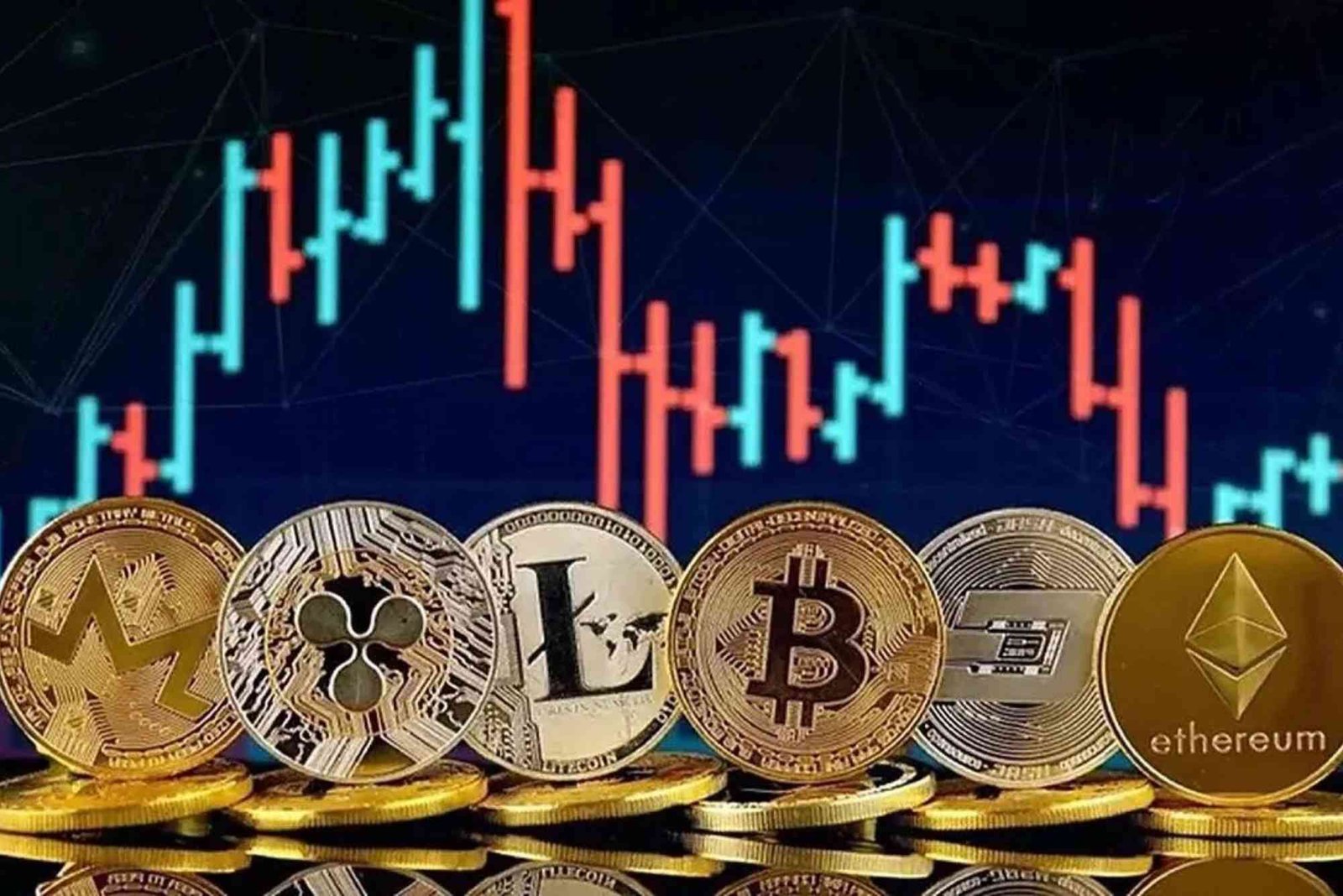Introduction
The rise of digital currencies has opened exciting opportunities for investors worldwide, but it has also created new risks. From scams to phishing attacks and fake exchanges, beginners often fall into traps when purchasing their first crypto. Understanding how to buy cryptocurrency safely is crucial if you want to protect your investment and enjoy the benefits of digital finance. In this comprehensive guide, we’ll walk through every step — from choosing secure exchanges to protecting your wallet — ensuring your entry into cryptocurrency is both safe and successful.
Understanding Cryptocurrency and Its Risks
Cryptocurrency operates on blockchain technology, which ensures decentralization and transparency. However, unlike traditional banking systems, it lacks centralized regulation. This means while you have full control over your funds, you are also fully responsible for their safety. Many investors have lost assets due to human error, scams, or poor security practices. That’s why knowing how to buy cryptocurrency safely is essential before you make your first transaction.
Choosing a Trusted Exchange
When learning how to buy cryptocurrency safely, your first and most important decision is choosing a secure exchange. A crypto exchange acts as a marketplace where you can buy, sell, or trade digital assets like Bitcoin, Ethereum, or Solana.
Look for Licensing and Regulation
Before signing up, verify whether the exchange is regulated in your country. Regulated exchanges must comply with financial laws and undergo regular audits. Platforms like Coinbase, Binance, and Kraken are widely recognized for their strong compliance policies.
Check for Security Features
A reputable exchange uses advanced encryption, two-factor authentication (2FA), and cold storage for user funds. Avoid platforms that don’t provide clear information about their security protocols.
Review User Feedback
Real user reviews can reveal a lot about an exchange’s reliability. Check social media platforms, Reddit, or Trustpilot for user experiences. If you notice recurring complaints about frozen withdrawals or poor support, it’s best to look elsewhere.
If you want to explore reputable platforms, you can also visit Where To Buy Cryptocurrency for useful guides on safe crypto purchases.
Setting Up a Secure Wallet
Even if you buy crypto from a trusted exchange, leaving your funds there indefinitely isn’t wise. Crypto exchanges can be hacked. A personal cryptocurrency wallet gives you control of your private keys, enhancing your asset security.
Hot Wallets vs. Cold Wallets
Hot wallets are connected to the internet, making them more convenient but also more vulnerable to hacks. Cold wallets (hardware wallets like Ledger or Trezor) store crypto offline, offering maximum protection. For long-term investors, cold wallets are the safest option.
Use Strong Passwords and 2FA
Create a unique, complex password that includes uppercase letters, symbols, and numbers. Always enable two-factor authentication for both your exchange and wallet. This simple step adds a significant layer of protection.
Verifying Your Identity Safely
Most regulated exchanges require identity verification under “Know Your Customer” (KYC) laws. This process helps prevent money laundering and fraud. When submitting your documents, always make sure you are on the official exchange website and never share personal information through email or social media.
Phishing attacks often mimic legitimate exchange emails. Always double-check the URL before entering credentials or uploading ID documents.
Using Secure Payment Methods
When buying crypto, choose payment methods that offer protection. Bank transfers and credit cards are safer than anonymous methods like gift cards or peer-to-peer cash exchanges.
Some exchanges may allow PayPal purchases, but fees might be higher. Avoid offers that seem “too good to be true,” especially from social media or WhatsApp groups. These are often scams targeting new investors.
Research Before Investing
Knowing how to buy cryptocurrency safely isn’t only about secure transactions — it’s also about understanding what you’re buying. The crypto market is full of projects, some legitimate, others not.
Before purchasing, read the project’s whitepaper, study its purpose, and check its team’s background. Look for community feedback on platforms like Reddit or CoinMarketCap. If a coin promises unrealistic returns or lacks transparency, consider it a red flag.
Avoiding Common Cryptocurrency Scams
Scammers often target newcomers with sophisticated schemes. Recognizing these can save you from major losses.
Phishing Scams
These involve fake websites or emails that look like legitimate platforms. Always type the exchange URL manually and bookmark it for future use.
Fake Giveaways and Celebrity Endorsements
Never send crypto expecting a “double return.” Scammers often use fake social media accounts claiming to represent well-known figures like Elon Musk or Vitalik Buterin.
Pump and Dump Schemes
In these schemes, fraudsters artificially inflate the price of a low-value coin and sell it when others start buying. Avoid coins hyped solely on social media.
Protecting Your Investments Long-Term
Safety doesn’t end after you buy crypto. You must actively protect your assets from theft, loss, or cyberattacks.
Regular Backups
Keep multiple encrypted backups of your wallet keys or recovery phrases. Store them offline in secure locations like a safe or safety deposit box.
Use Updated Software
Always update your wallet, exchange app, and antivirus software. Hackers exploit outdated software vulnerabilities.
Stay Educated
The crypto landscape evolves rapidly. Follow credible news outlets and educational platforms to stay updated on threats and safety practices.
If you wish to expand your knowledge, check out this Related Cryptocurrency article that dives deeper into market trends and insights.
The Role of Regulation in Crypto Safety
Government regulations are often viewed negatively in the crypto world, but they actually enhance investor protection. Regulatory frameworks help identify fraudulent exchanges and force companies to follow anti-money laundering laws. Countries like the U.S., UK, and Singapore have implemented strong policies that make it safer to buy cryptocurrency.
How to Store Cryptocurrency After Buying
After purchasing, you must store your cryptocurrency securely. Transferring it to your private wallet is the best practice.
If you’re using a cold wallet, always verify that your device came directly from the manufacturer. Fake hardware wallets have been known to steal private keys. For smaller, everyday transactions, hot wallets can work — just ensure they have encryption and backup options.
Monitoring Your Crypto Portfolio Safely
Use reliable apps or tools to monitor your portfolio without compromising your private keys. Avoid linking wallets to unverified third-party tracking apps. Stick to platforms like CoinStats or CoinMarketCap’s portfolio tracker.
You can also use browser extensions with caution — disable auto-login features and clear cache regularly to minimize risks.
Learning From Real-World Crypto Breaches
In 2014, Mt. Gox, one of the largest crypto exchanges, collapsed after losing 850,000 Bitcoins to hackers. More recently, in 2022, hackers exploited vulnerabilities in the Wormhole bridge, stealing over $300 million in Ethereum. These incidents highlight the importance of security awareness and private key control.
Legal and Tax Implications
When buying cryptocurrency, you should understand the tax rules in your country. Many governments now classify crypto as an asset, meaning capital gains tax may apply when you sell or trade it.
Maintaining transaction records helps when filing taxes and proving ownership. Always use official wallets or exchanges that provide transaction statements.
Final Tips for Buying Cryptocurrency Safely
To summarize, here are key takeaways: always use reputable exchanges, verify URLs, protect your private keys, enable 2FA, and stay informed about the latest security threats. Being proactive is your best defense.
Cryptocurrency investing can be rewarding if approached carefully. By following these principles, you’ll significantly reduce risks and gain confidence in your digital investment journey.
For more security resources and safety guides, Learn more about managing your digital well-being and online safety practices.
FAQs
What is the safest way to buy cryptocurrency?
The safest method is to use a licensed exchange, verify your account, enable 2FA, and transfer funds to a cold wallet afterward.
Can I buy cryptocurrency without being scammed?
Yes. Avoid unsolicited offers, double-check exchange URLs, and never share private keys or recovery phrases.
Should I leave my crypto on an exchange?
No. For long-term storage, transfer it to a personal wallet to prevent potential losses from exchange hacks.
Are credit card purchases safe for buying crypto?
They can be, but ensure the exchange is reputable. Some banks may charge additional fees or block crypto-related transactions.
How do I know if an exchange is legitimate?
Look for regulatory licensing, transparent ownership, SSL encryption, and positive user feedback before depositing any funds.
Learning how to buy cryptocurrency safely is essential for anyone entering the world of digital finance. While cryptocurrencies bring independence and opportunity, they also demand responsibility. With the right research, secure practices, and awareness of potential threats, you can invest confidently without falling victim to scams or hacks. Start your crypto journey today by choosing regulated platforms, safeguarding your keys, and continuously educating yourself — your financial security depends on it.







